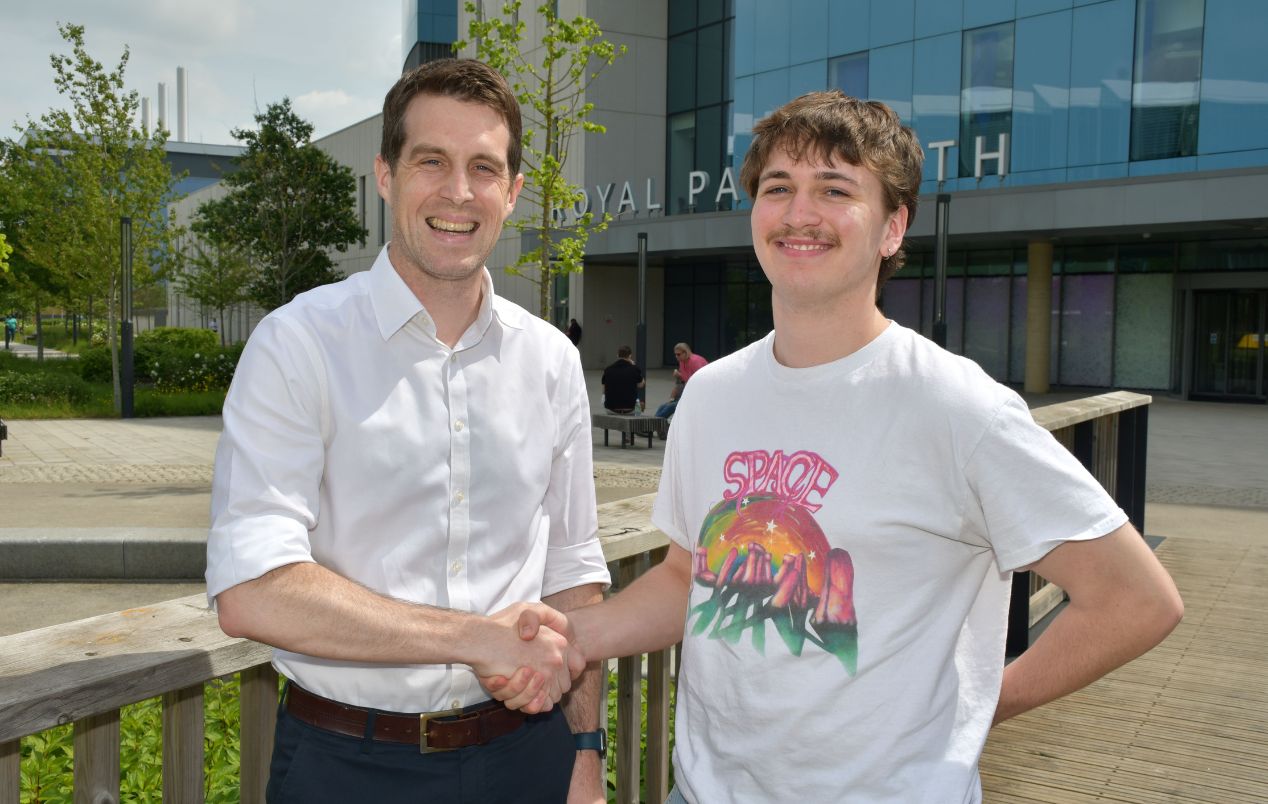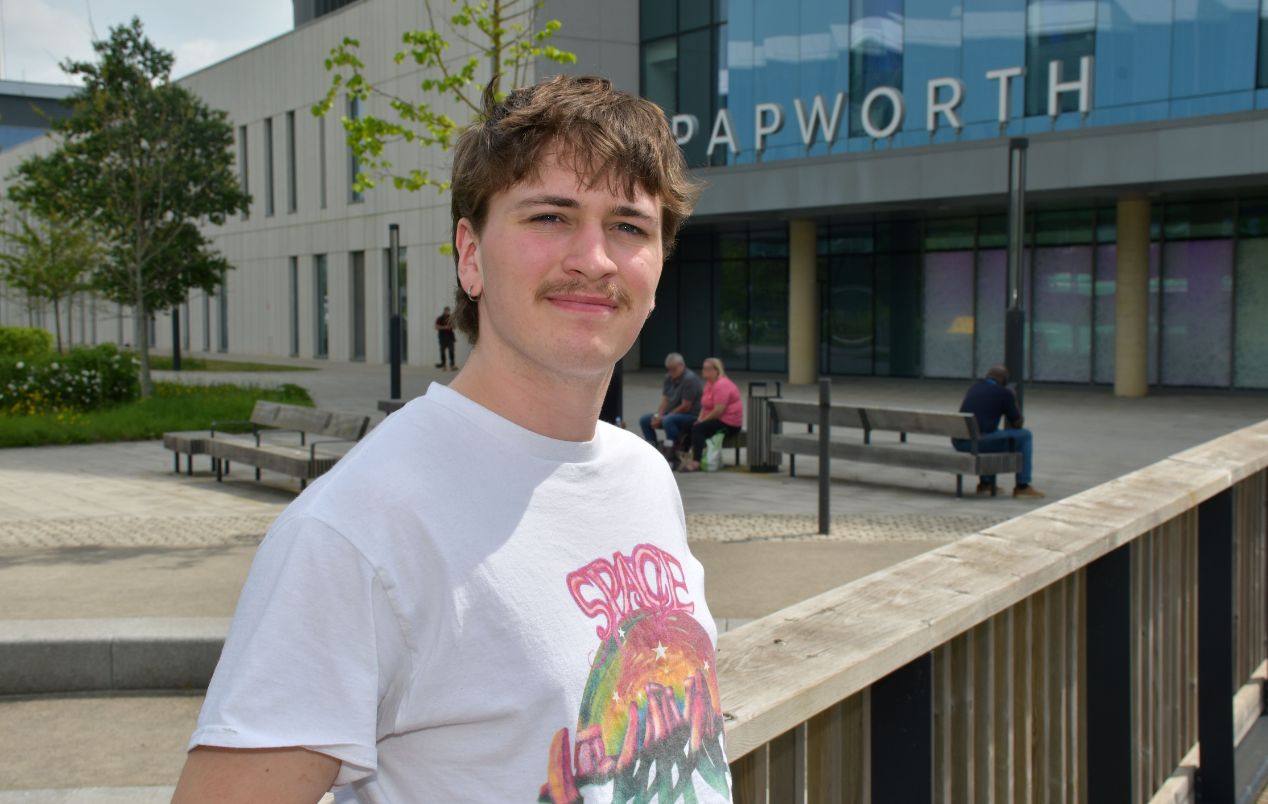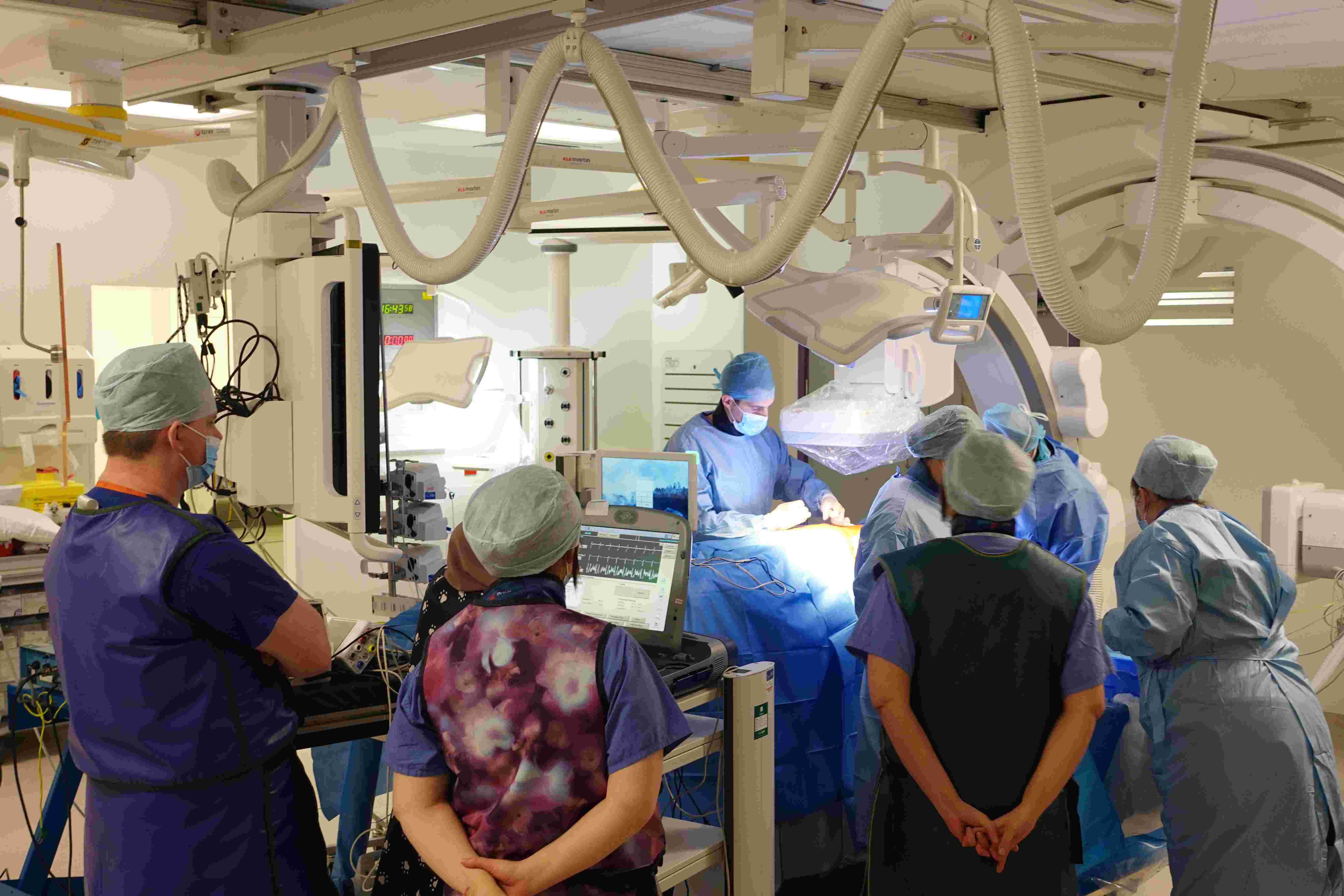A student who suffered a cardiac arrest while competing in the Cambridge half-marathon has returned to Royal Papworth Hospital to thank one of the NHS consultants who saved his life and later implanted a defibrillator to protect him from future sudden cardiac arrests.
George, an architecture student at Loughborough University, was close to the end of the 13.1 mile course in March when he collapsed suffering from a cardiac arrest.
Dr Greg Mellor, a consultant cardiologist and electrophysiologist at Royal Papworth Hospital NHS Foundation Trust, was one of three passing participants, all of whom were NHS employees, who stopped to perform life-saving CPR.

Dr Greg Mellor (left) with George (right) outside Royal Papworth Hospital
“The half marathon was going very well and I was on for a good pace,” explained George, who is from south London.
“I was pushing myself hard and I remember feeling really tired. I was about 1km from the finish and then the next thing I remember, I woke up in an ambulance having survived a cardiac arrest.
“I’d like to thank all those who helped resuscitate me. I’m lucky that three people with medical expertise were passing as without their swift actions, I might not be here today.”
Thanks to the actions of Dr Mellor and his colleagues - Dr Ben Straughan, anaesthetic registrar and another unknown individual – in delivering immediate CPR, George’s heart restarted without the need for a defibrillator.

George Colley outside Royal Papworth Hospital
George was taken to Addenbrooke’s Hospital where he underwent a number of tests. He was then transferred the short distance along the Cambridge Biomedical Campus to Royal Papworth Hospital where he was implanted with a new type of cardioverter-defibrillator (ICD) by a catheter laboratory team led by Dr Mellor.
An ICD is a small device about half the size of a mobile phone, traditionally implanted under the skin. It will help protect against sudden cardiac arrest in the future, by delivering lifesaving defibrillation. It can also treat some fast heart rhythms without needing to shock the heart.
Dr Mellor commented: “I was running the half-marathon with my brother when we came across George on the ground, experiencing a cardiac arrest.
“Instinct just kicked in and between myself and two other NHS colleagues who stopped to help, we started CPR whilst also calling for an ambulance and a defibrillator. Thankfully the CPR was successful in restarting George’s heart.”
“George had no known heart condition and no abnormalities were found as a result of extensive testing, so ultimately we don’t know why this happened to him.
“However we do know that up to 25% of individuals who survive an unexplained cardiac arrest will have another arrest within five years.
“Nobody knows what George’s personal risk will be in the future, but we were very open with him and his family that the consequence of another cardiac arrest without the protection of an ICD could be fatal.”
George continued: “I was informed in hospital that Dr Mellor was one of those who had helped resuscitate me. A couple of days later he came in, introduced himself and explained his background. I couldn’t believe it and it feels like fate that he is now overseeing my care.
“From our early discussions it became apparent that an ICD might be an option for me and after discussions with family, it was a fairly straightforward decision.”

George’s procedure took place in a catheter laboratory at Royal Papworth NHS Foundation Trust
George was implanted with the Aurora EV-ICD from Medtronic, the first major development in ICD technology in over 10 years. He follows closely behind some of the first people in the UK to be fitted with this device, in January 2024, who were also Royal Papworth Hospital patients.
Traditional ICDs involve putting wires inside a patient’s heart and whilst these work effectively, there can be long-term complications associated with these, such as infection.
The Aurora EV-ICD sees the lead placed outside the heart but positioned under the patient’s sternum and close to the heart so it requires less energy. This means the smaller battery lasts several years longer and is also able to provide anti-tachycardia pacing which can be used to treat some fast heart rhythms without the need to shock the heart.
The Aurora EV-ICD is implanted beneath the left armpit with the lead placed outside the heart and veins, under the breastbone. This potentially reduces the risk of injury to the vein or heart which could cause a life-threatening complication.
If you’re witnessing a cardiac arrest, call 999 immediately and start cardiopulmonary resuscitation (CPR). You’ll be given instructions whilst you wait for help. Further information on how to perform CPR can be found on the NHS website: www.nhs.uk/conditions/first-aid/cpr.
